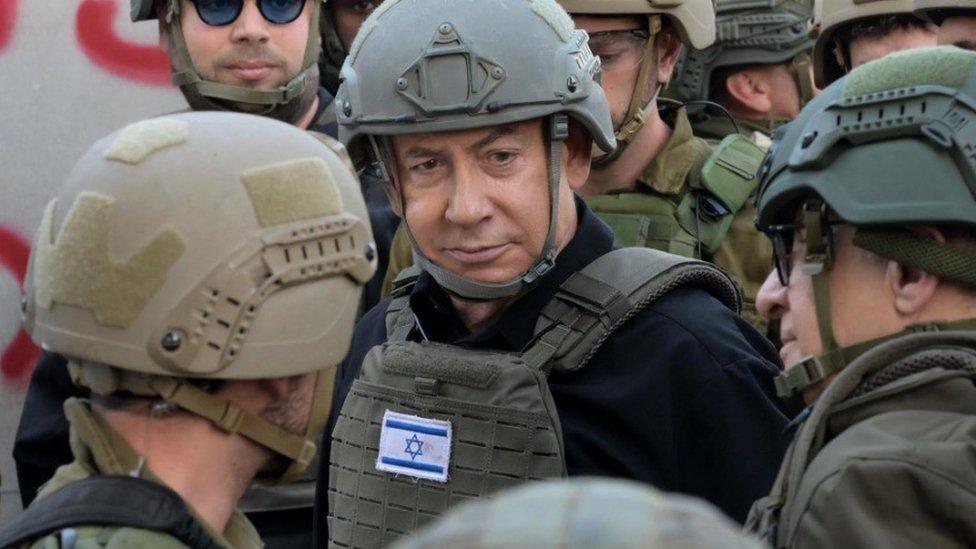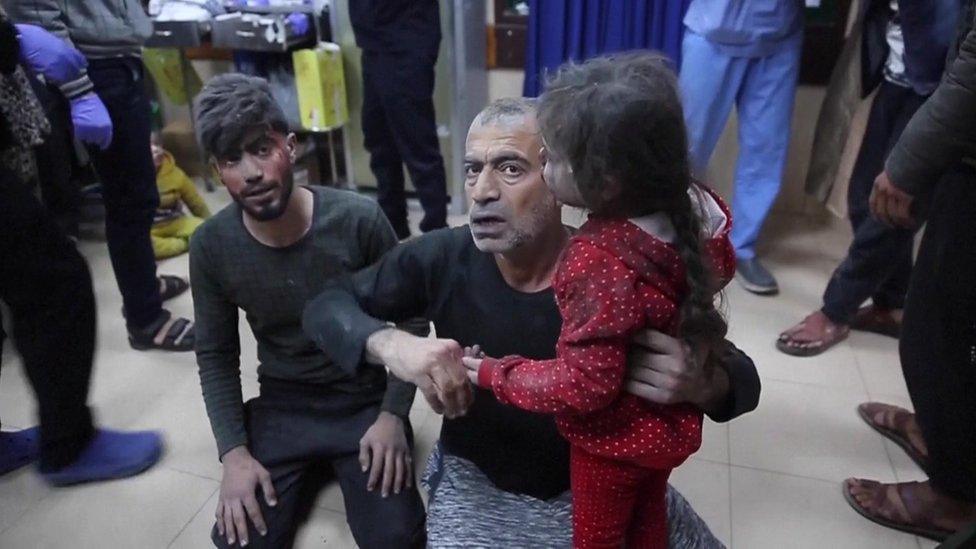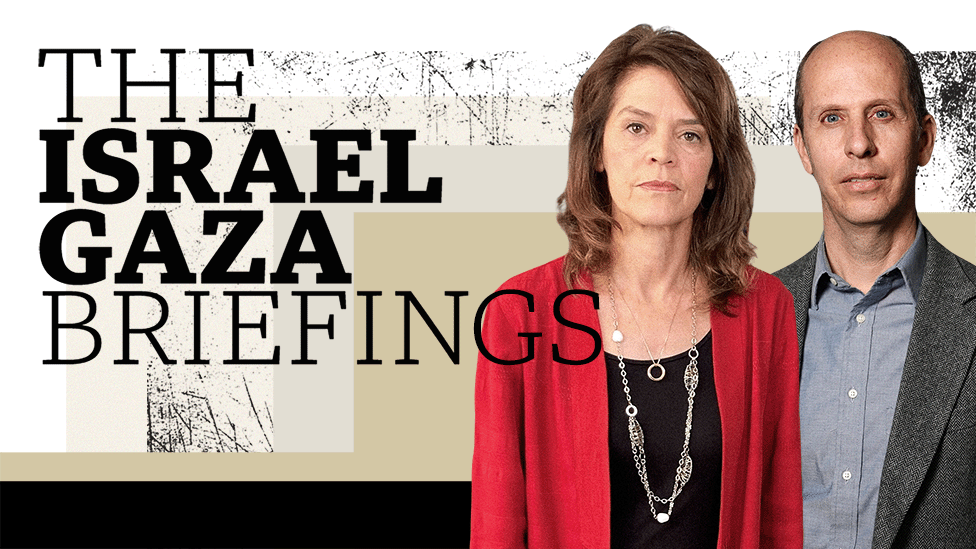Israel-Gaza war: Netanyahu vows to intensify campaign
- Published

Benjamin Netanyahu said the war was "not close to being over"
Prime Minister Benjamin Netanyahu has said Israel will intensify its fight against Hamas in the coming days.
He told members of his party that he had visited Gaza on Monday morning and that Israel's military campaign there was "not close to being over".
His comments come days after the US secretary of state said Israel should lower the intensity of its strikes.
The war began on 7 October after Hamas led a deadly attack on communities inside Israel.
Gaza's Hamas-run health ministry said on Monday that some 20,674 Palestinians had been killed in Israeli bombardments since then. It says most of the fatalities have been women and children.
Some 1,200 people, mainly civilians, were killed when Hamas gunmen stormed across the border on 7 October. About 240 people were taken back to Gaza as hostages. Israel says 132 are still being held.
Mr Netanyahu has vowed to destroy Hamas and return the hostages to Israel.
He told a meeting of his Likud party that troops he met on his visit to Gaza had urged Israel to keep fighting "until the end".
"We're not stopping. We're continuing to fight, and we're intensifying the fighting in the coming days. It's going to be a long war that's not close to ending."
Later on Monday, the prime minister was heckled by relatives of hostages demanding the immediate release of their loved ones during an address to parliament.
"We will not be able to release all the abductees without military pressure ... we will not stop fighting," he said, as families chanted "Now! Now!" from the gallery.
Israeli and Arab media say that Egypt has proposed a plan for a ceasefire between the two sides.
According to reports, the plan would see the phased release of all Israeli hostages and an undetermined number of Palestinian prisoners held in Israeli jails over the course of a month and a half, ending with a suspension of Israel's offensive.
A previous temporary truce deal negotiated by Qatar saw dozens of hostages released from Gaza in exchange for Palestinian prisoners.
So far, both Israel and Hamas have resisted growing calls for a ceasefire.
On Sunday the Gazan health ministry said an Israeli air strike killed at least 70 people in the Al-Maghazi refugee camp in the centre of the strip, with a densely populated residential block destroyed.
The Palestine Red Crescent Society said "intense" Israeli air strikes led to the closure of main roads between Maghazi and two other refugee camps, Al-Bureij and Al-Nuseirat, "hindering the work of ambulances and rescue teams".
In a statement to the BBC on Sunday, the Israeli military said it had received "reports of an incident in the Maghazi camp".
"Despite the challenges posed by Hamas terrorists operating within civilian areas in Gaza, the IDF [Israeli Defense Forces] is committed to international law including taking feasible steps to minimize harm to civilians," it added.
Related topics
- Published25 December 2023

- Published23 December 2023
